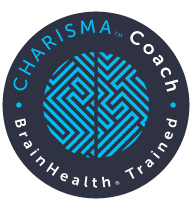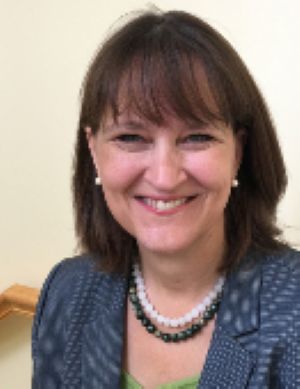

Today we’d like to introduce you to Cynthia Singleton.
Hi Cynthia, so excited to have you with us today. What can you tell us about your story?
My journey started with my son’s was diagnosed with autism in 2001. The very first person I spoke with when I first noticed something was off with my son, was a university-trained special education teacher, whose vocation it was to work with children with disabilities and who also had a son with autism. She told me something that guided my life and choices over the next two decades.
She told me, “Nothing in my teacher training ever prepared me to teach my son with autism, so don’t expect anything from the public schools.”
Because of that, we took a seldom tread path, against the advice of doctors in those days, of starting with ABA clinic, then private school, then homeschooling, and only transferred later to the public school when my son was in 2nd grade at his request. He saw his sister attending preschool and decided that he wanted to attend a ‘building school’ like his sister.
Mindful of my friend’s comments, I spent over a year attending every parent training I could find on how to advocate within the special ed system in public school. By the time my son was ready to enroll in school, I was ready. His admission ARD was 13 hours: 6 hours the first day, and 7 hours the second day. ARD is the name of the meeting between the parents and the school to determine what special ed services a student will receive.
Because I knew my rights as well as his rights, I was able to advocate for him to be in a gen ed class, receive an hour a week of speech services, as well as 65 hours of compensatory services because the initial evaluation was delayed so long. I also got him goals which helped him make extraordinary progress as he transitioned from a self contained class to all day gen ed with the support of a paraprofessional over the course of third grade.
Because of the success that I had advocating for my son, friends began asking for help with their ARDs. After a few years, I decided to hang out my shingle as a special ed advocate.
Over the years, I have had clients in 14 different districts in the Houston area and successfully helped parents resolve crises with the school. I have a few clients stay with me from their children entering school to graduating.
My approach has always been to work collaboratively with the school, but back up parent requests with complaints if the school personnel are behaving badly or being unreasonable or acting illegally. There are many wonderful people working in the schools with kids, but there are some difficult people as well. My most powerful advocacy is often to get the teacher the help and resources they need in order to implement the IEP. Teachers often want to do more but are told no by cost conscious administrators. Most parents don’t realize how strong their parent rights used to be.
I say used to be because the current administrations at the federal and state level has actively been undermining parent special ed rights. Between that and the teacher shortage, it has become increasingly difficult to effectively advocate for parents. Situations that had been relatively easy to resolve with 4-5 hours of advocacy, often remain intractable problems even with 10-15 hours of advocacy. This is often because new and/or untrained or uncertified teachers and administrators don’t know their responsibilities under the law.
Because of that, I am evolving my business to serve teen, young adults, and parents in new ways.
I am super excited to have discovered a new approach to teach social skills using immersive virtual reality. It is called Charisma, and it was developed by the Center for Brain Research at UT Dallas. They have research proving it’s efficacy to improve social skills in teens and adults. I love helping teens and adults with social issues connect more deeply with their social world. I am a trained Charisma coach as well as have over two decade of social skill training and practice with my son. I’m excited to have a research based approach & framework to use while working with teens and young adults.
The applications are varied. I can help a teen or young adult learn the skills they need to make and keep friends, stand up to bullies, network, interview, be better at dating, and learn the soft skills they need to be better at their job.
I’m also going to be focusing on helping parents create effective transition plans for their high school teens. When students graduate from high school, they often fall off the cliff of support that school provided. Parents are overwhelmed with choices about housing, how to help their young adults learn to live in a dorm or apartment independently, choices in different educational paths after high school, how to create a meaningful career path, applying for adult programs like SSI, transitioning their teen to the adult medical world, and creating a social network beyond high school.
I take a deep dive with parents over the course of six months to let them know what their choices are and help them work with their teen to make choices that make the most sense for their teen.
You can find out more at www.advocate-well.com
I’m sure it wasn’t obstacle-free, but would you say the journey has been fairly smooth so far?
Having your own business definitely has it’s ups and downs. I’ve been really fortunate to have amazing clients.
Some of my biggest obstacles have arisen in the post Covid environment. This is why I decided to pivot my business from special education advocacy to social skill coaching and parent transition coaching.
Now I’m in “new business” mode and working to get the word out about the great services I offer.
Appreciate you sharing that. What else should we know about what you do?
I am a social skills coach using a cutting edge, research based approach–a virtual reality platform called Charisma. I’m excited about the efficacy of this innovative approach.
I’m extremely proud that I’ve found another avenue through which to meet a critical need in the autism community: social skill training for teens and young adults.
Part of what sets me apart is that I’ve spent my entire life learning, teaching, or speaking other languages. I’m fluent in German, Japanese, and Spanish and am currently learning Czech. When you learn a new language, you have to learn a new set of social skills to meet expectations in that society. This was most extreme in Japan, where customs are very different from the US. This has helped me to become very articulate in explaining the nuances of social interactions, which most people aren’t good at doing.
We’d be interested to hear your thoughts on luck and what role, if any, you feel it’s played for you?
I don’t really believe in luck. I take the view that “luck is skill meeting opportunity”. I have a passion to serve the autism community and developed skills through raising my son that have been useful to others. That helps me to recognize the opportunities that are around me.
Contact Info:
- Website: www.advocate-well.com
- Facebook: @advocatewell
- Linkedin: www.linkedin.com/in/cynthia-singleton-7bb468131
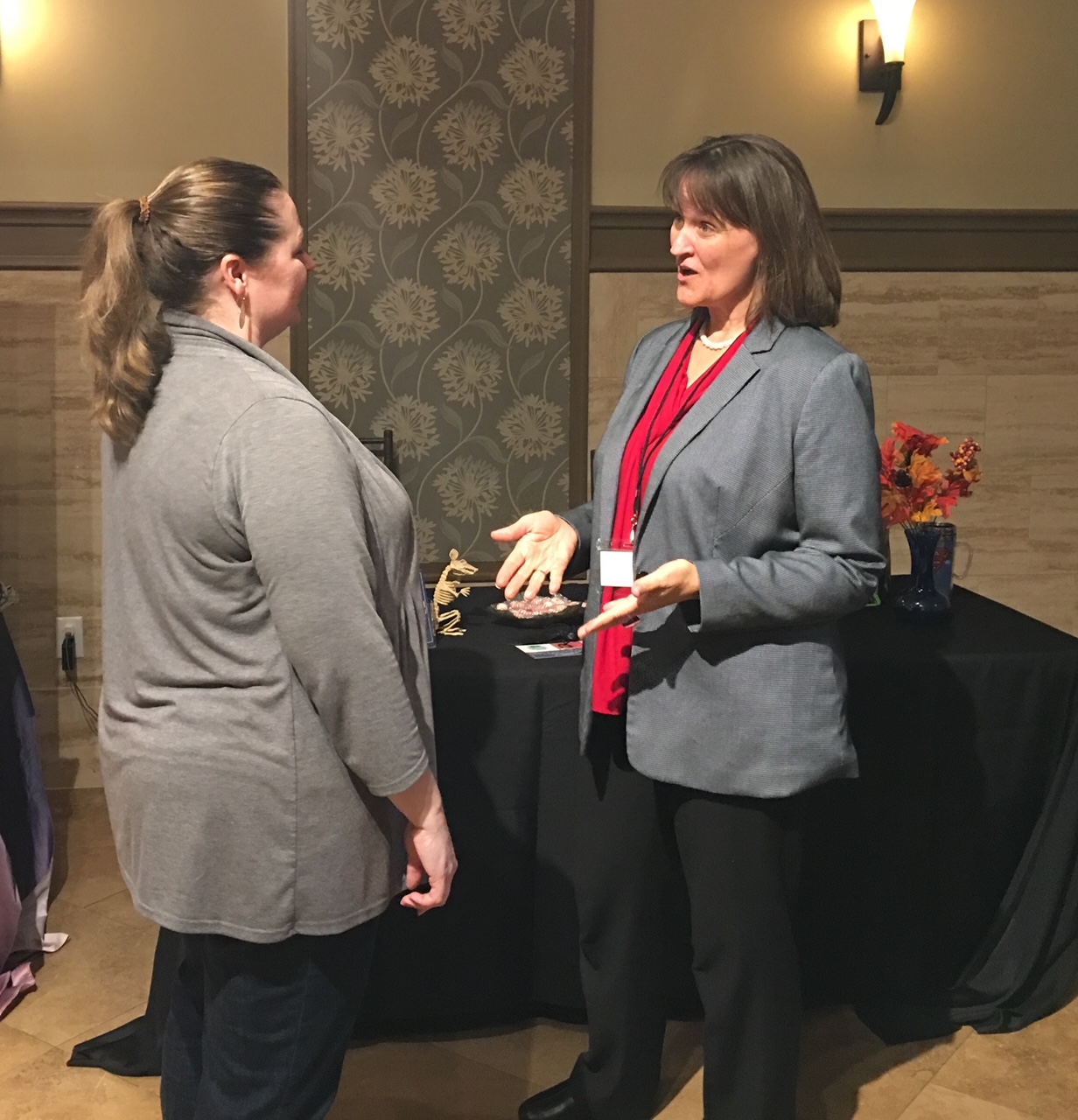
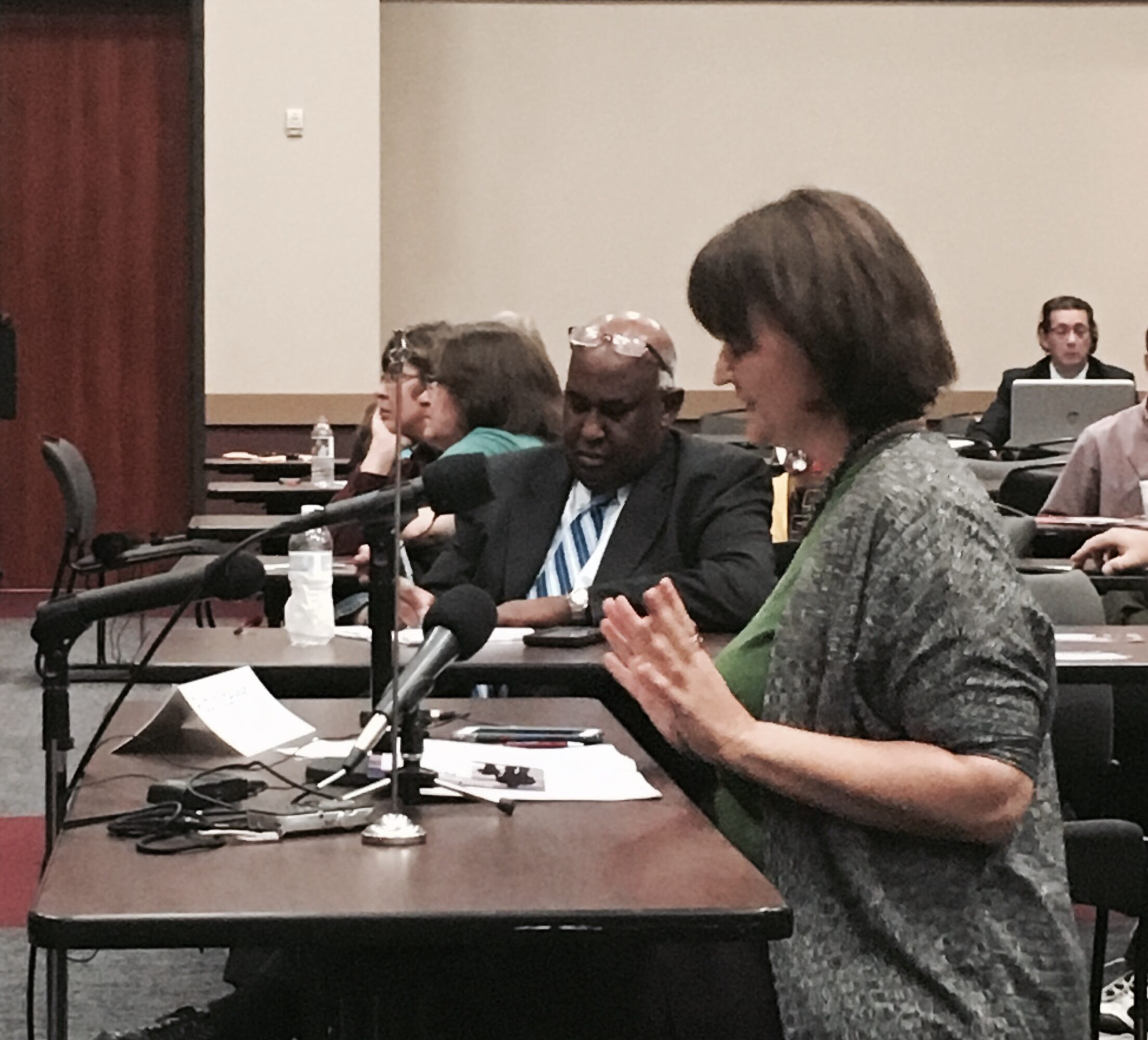
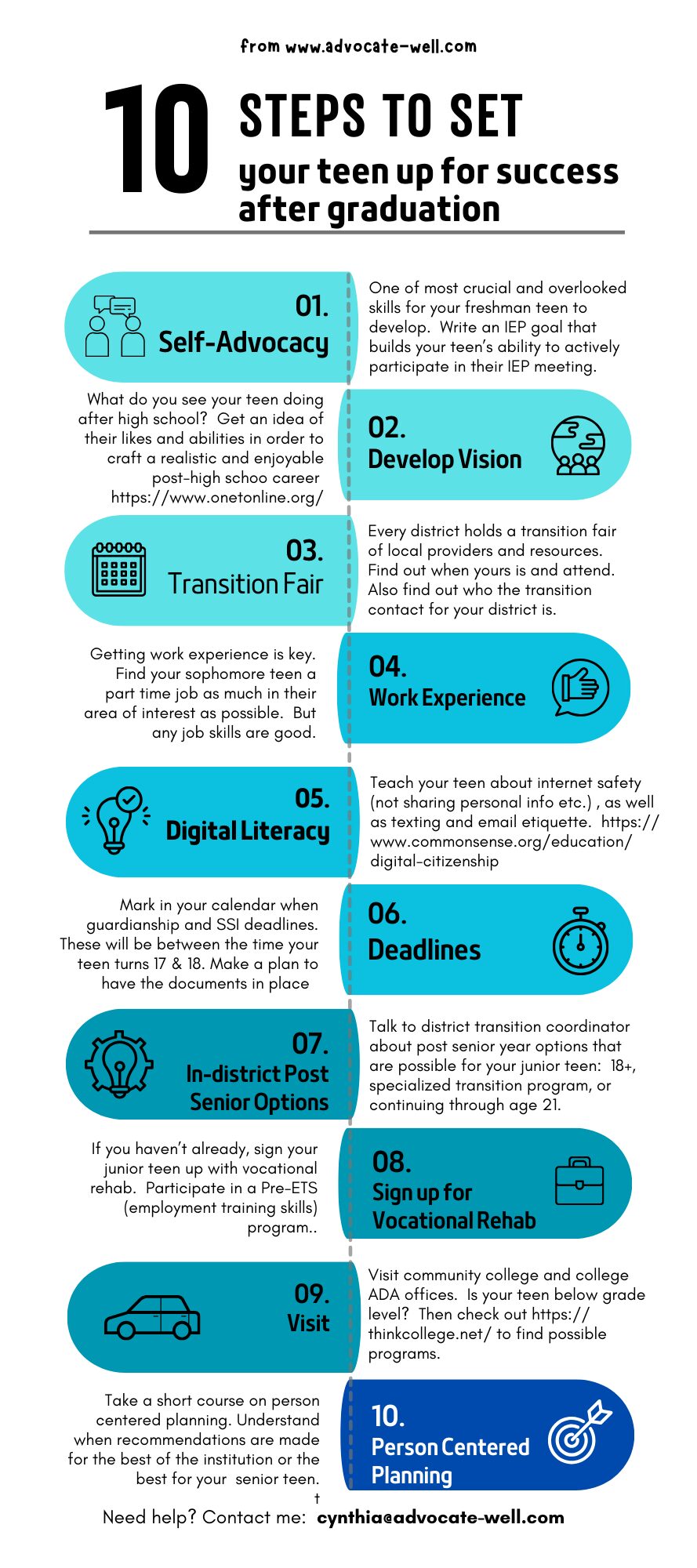
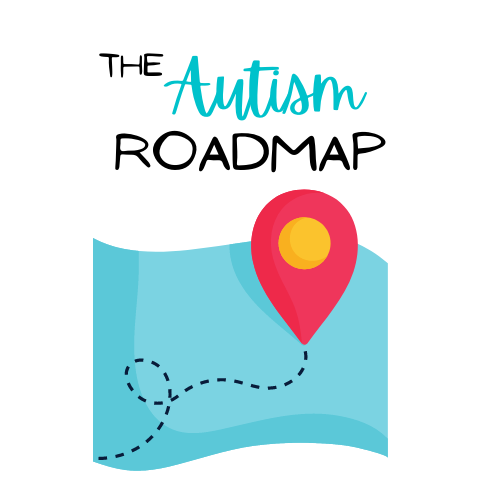
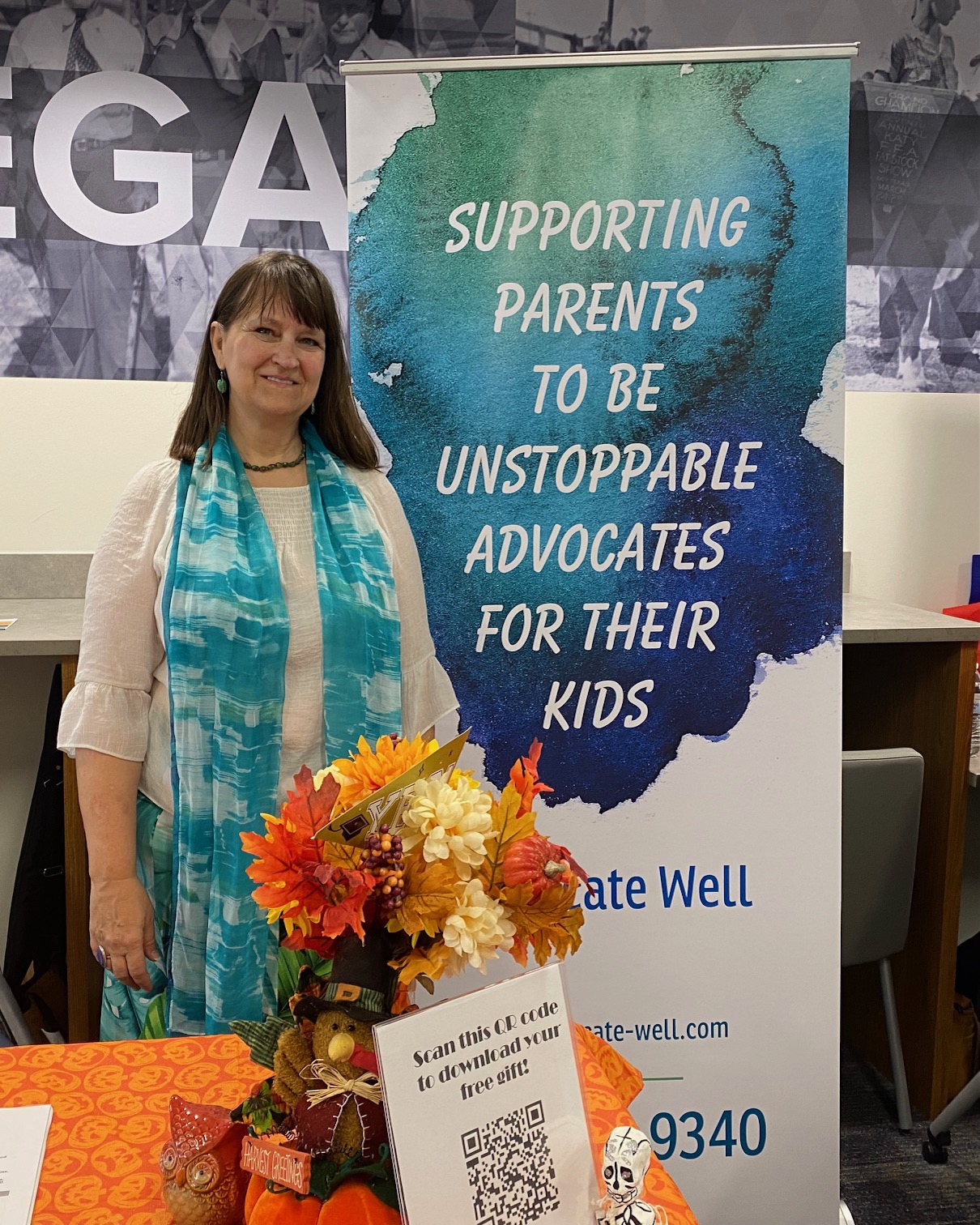
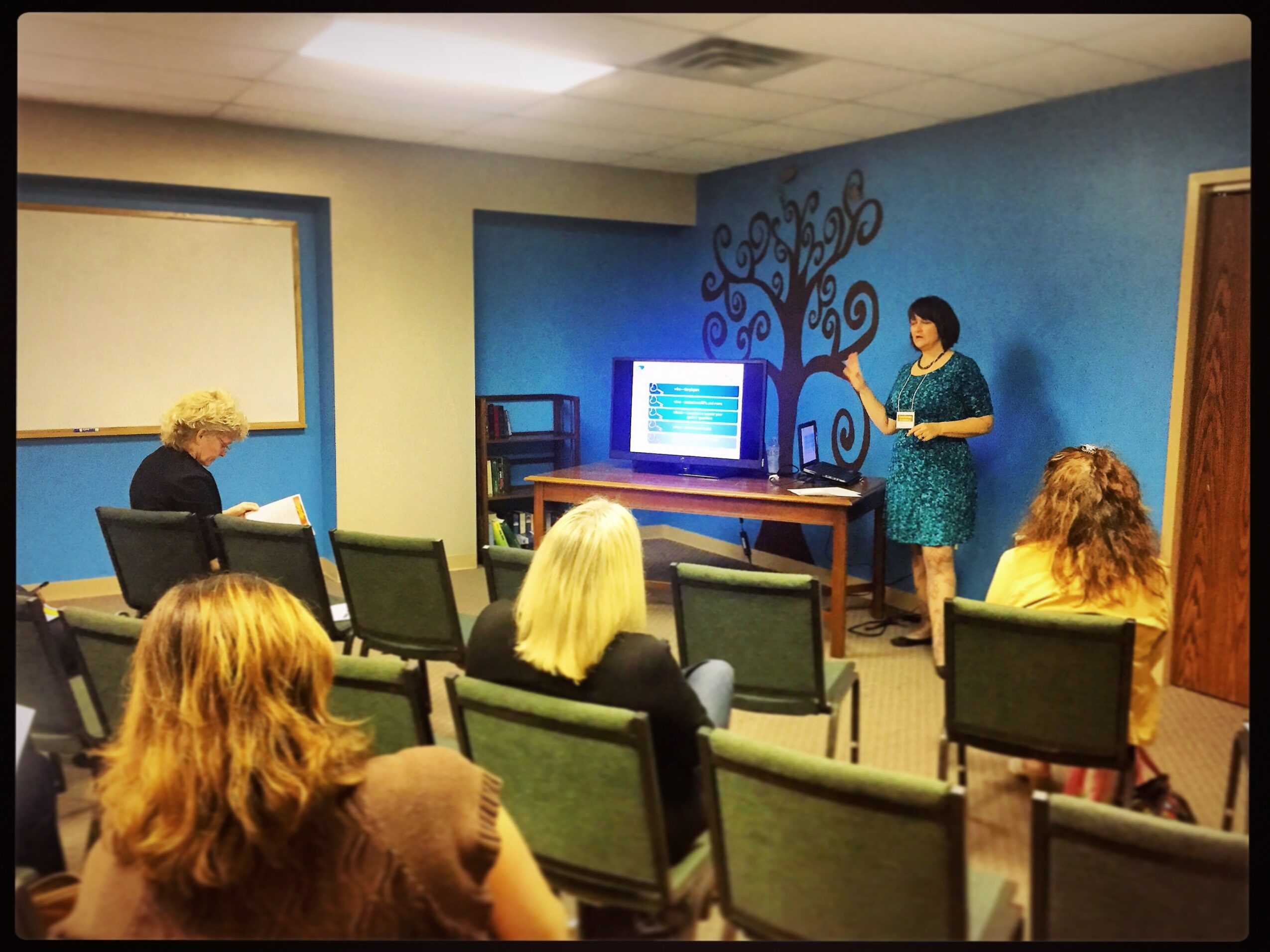
Me Training Local Law Enforcement on Autism Risk Management

